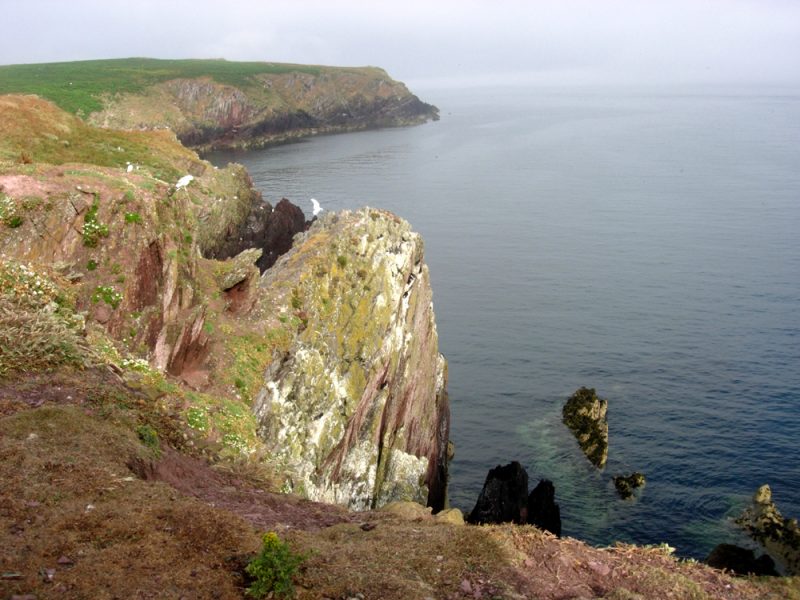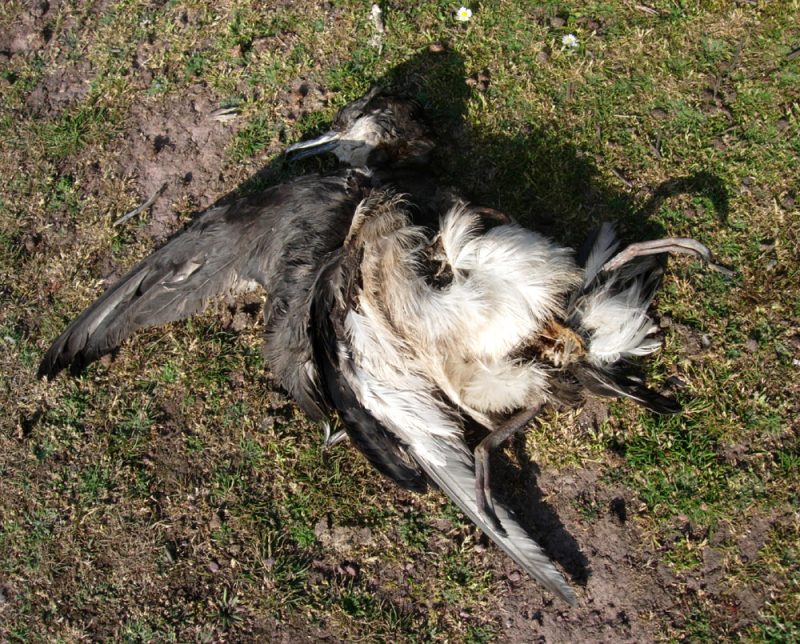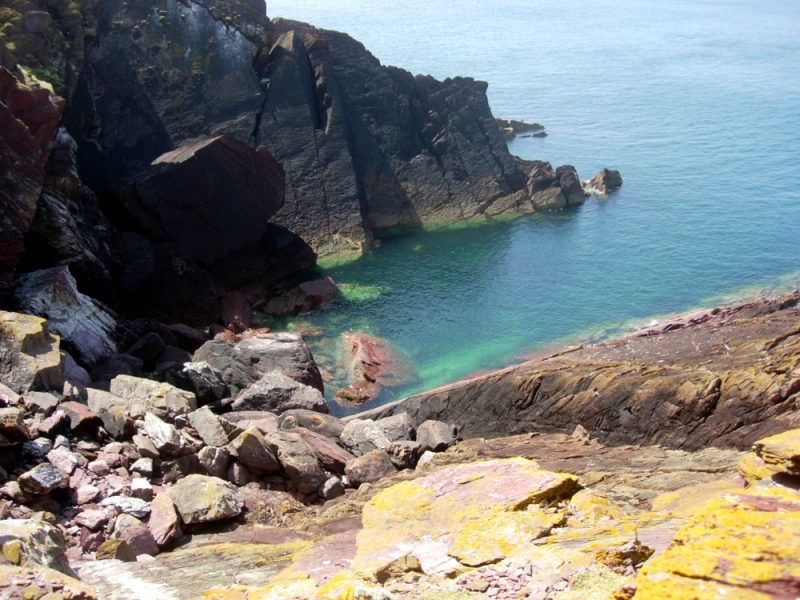This piece, Night Birds, first appeared on Caught by the River in 2016.
I have in my hand a talisman, the small gently hooked bill of a Manx shearwater, bleached white by the sun. I found it on the small island of Skokholm, off the coast of Pembrokeshire, among the carcasses strewn archaeopteryx-like over the bare ground. The shearwaters were the victims of gulls, caught while returning to their burrows. To see these elusive birds – and storm petrels, their smaller cousins – you must venture out in the dead of night.

Skokholm is an island reserve, important for seabirds and other wildlife. It is about a mile long and half a mile wide and is owned by the Wildlife Trust of South and West Wales. Two wardens live on the island for most of the year and in Summer it is possible to stay as a visitor.
On a July evening with night encroaching we gathered outside the cottages. Richard, one of the wardens, was taking us in search of the night birds of the island. A cool blue settled, I could see far into the dusk, gradations of blue ascending to a littoral of stars. It was warm, balmy and still. About me I could make out our group of sixteen people. We were advised to keep our torches turned off to save our night vision. The crescent moon hung like a shimmering horn in the west. It would drop low before they came ashore; they are birds of blanket darkness.
Storm petrels are the smaller of the two, one weighs no more than a dozen pennies and would fit like a purse in the palm of your hand. They breed in the rocky cliffs of Skokholm, home to a fifth of Europe’s population. Manx shearwaters have burrows further inland, also returning under the cover of darkness. Coming ashore they must survive the onslaught of hungry gulls. The area littered with their carcasses in the middle of the island, we named “the killing fields”.

Our party set off along the track through this open area of bracken. At Quarry Point we turned our torches on. The path was friable, slippery underfoot and white painted stones marked the route. I put out my hand to steady myself on an overhang of old red sandstone dusted with lichen the colour of turmeric. I found a seat among the rocks, a sort of rock sofa that looked as though it had been deliberately carved for watching the scene below. It felt comfortable and intimate on our perch on the quarry side, the bowl of darkness below like a stage-set, washed gently by a rolling tide. On a knuckle of rock to the South the lighthouse blinked white and red.

Richard told us once again to turn out our lights and stay quiet. We sat in silence and listened. Storm petrels have a strange call we were told; imagine a fairy coughing, a faint, throaty sound. I could hear many sounds – hums, groans and whispers, the cliff side shifting a little, stirring to life as the night drew on. Stars brightened and the constellation of Scorpio rose in the southern sky. Richard swept his search-light over the rocks. We waited. Then a few small birds – like night swallows or bats – fluttered nervously through the beam, white rumps flashing. They disappeared into dark crevices in the rock face. So quiet, so unobtrusive; there was no growling or coughing, no sound I could identify as a “fairy cough”.
Folklore has it that they are the souls of dead sailors, sea captains who mistreated their crew now doomed to haunt the seas forever. English speaking sailors in the nineteenth century called them Mother Carey’s Chickens. Mother Carey was the sea, cruel and threatening. To me they are timid, ethereal creatures, wanderers of the oceans; banished to the hours of darkness on land.
A soft salt breeze wafted in off the sea.
More birds fluttered into the cliffs like restless thoughts. The night was now a heavy blackness. We waited a while longer before ascending out of the quarry and heading back to the cottages. I lingered at the back of the group and turned off my torch through the killing fields. Then the eerie cackle of manx shearwaters become audible all around. Haunting and plaintive, the sound of a surreal night. Beneath our feet, a subterranean world of burrows. Overhead, black bird shapes eclipsed the stars then came to earth with a thud about us, some in the bracken, some on the path. I accidentally stumbled into one. It fluttered clumsily over my feet. I turned on my torch and it cowered and fumbled, a dazed, oily bird in the beam like a furry slipper. Then it stumbled apologetically into a bed of sea campion and bracken to find its burrow. As I made my way back the tail of the milky way bridged the sky in a cascade of stars.
